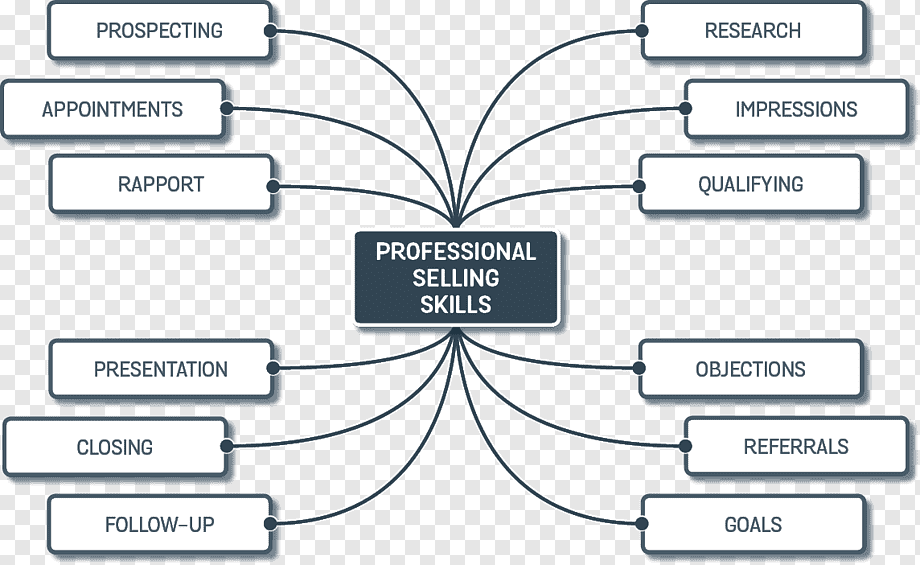At some point in a professional career, most people will be asked to sell something. Whether it’s an idea, an entire team or even themselves, sales is an important skill to master.
Having the right selling skills helps you move people toward making a purchase that benefits both parties. To help you improve, consider these essential tactics.
Knowledge of the Product or Service
Having extensive knowledge of the product or service you sell allows salespeople to tailor their pitches to customers. This knowledge helps them explain how a particular product can address a specific customer need, such as boosting productivity or cutting costs.
Strong listening skills are essential in establishing a connection with potential customers and understanding their needs. Having these skills enables sales associates to listen for verbal and non-verbal cues, as well as respond thoughtfully.
It is also important for salespeople to be able to demonstrate how their products or services will yield a return on investment. This is especially true for expensive products or services that take time to implement.
Problem-Solving Skills
Problem-solving skills are necessary for resolving issues that can arise during the sales process. Salespeople who have strong problem-solving abilities are more likely to be successful at their jobs and generate revenue opportunities for their companies.
These problem-solving capabilities include identifying issues, resolving objections, and presenting solutions. Sales training programs can help improve these skills and develop an effective selling strategy.
Salespeople must also have good business acumen to provide their clients with the right solutions. This includes understanding the company’s culture, industry trends, and broader market dynamics. This helps them identify the best solutions for each client. Moreover, it allows them to avoid seller-centric behaviors and create value-driven solutions for customers.
Good Listening Skills
One of the most important skills for salespeople to have is good listening. This means that they must be able to understand their client’s needs and wants, which can only happen if they truly listen to what is being said.
This requires avoiding distractions, not thinking about what to say next, and not interrupting the speaker. It also involves listening without casting judgement or mentally evaluating what is being said.
This is often accomplished by mirroring non-verbal body language, such as crossing arms, to show the person that you are listening and understanding them. It can also be accomplished by asking thoughtful questions that allow the customer to explain more thoroughly their concerns.
Turning Objections Into Opportunities
Objections are a natural part of selling. They may be about your product’s price, value, relevance to the buyer’s situation, or even their purchasing ability.
Rather than seeing them as roadblocks, consider these objections as valuable feedback that will help you reach your sales goal. If you can view them in this light, you’ll find handling sales objections much easier.
To be able to do this, you must learn how to collaborate with buyers. This involves listening to them, understanding their needs, and creating a plan for the purchase that aligns with those needs. It also requires using technology that allows you to work with multiple teams and clients at once.
Tenacity
Tenacity is a key sales skill that top sellers possess. It’s what drives them to keep going after their targets, even when it feels like the odds are against them.
Einstein’s tenacity in staying up days at a time to solve his mind-bending equations and Edison’s thousands of failed experiments before lighting the first light bulb demonstrate this important trait. Top sellers will also have a strong financial goal in mind that can motivate them to push through tough times.
Looking at sales metrics to understand what’s driving your success or failure will help you develop your tenacity. SMART (specific, measurable, attainable, relevant, and time-limited) goals act as your North Star that will keep you on track.
Becoming Comfortable
Getting comfortable when selling is key to being successful. If you’re nervous or uncomfortable, buyers will pick up on it and may not buy from you.
Salespeople have the unique position of seeing market trends, hearing customers’ pains and frustrations as well as their hopes and dreams. As such, salespeople can be the voice of their company.
A career in sales also provides an opportunity for upward mobility within the company, as pay is in direct proportion to success in sales. It is a career that tests one’s mettle, but it can be very rewarding. Achieving success in sales requires knowledge, practice and hard work.Freelance


